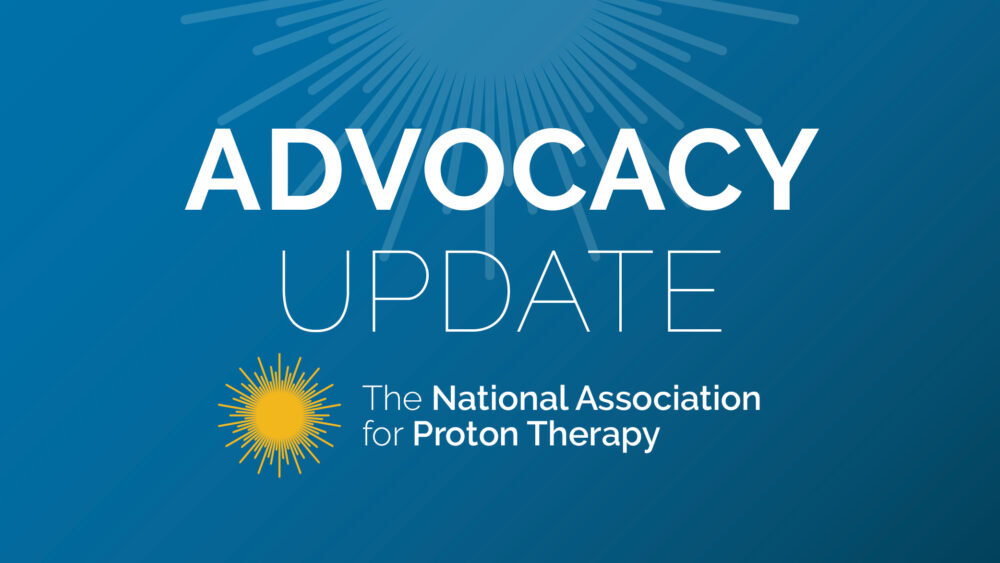Congressional Updates
Doc Fix Signed Into Law
A “mini-bus” federal funding package signed into law March 9 included the “Doctor Fix,” mitigating Medicare physician payment cuts by 1.68% effective March 9 and extending physician incentive payments for participation in advanced payment models – albeit at a lower bonus rate of 1.88% compared to 5% in 2024 and 3.5% in 2025. Furthermore, the package extends the Medicare physician work geographic index floor through December 31, ensuring continued support for physicians across different regions. Details can be found in a McDermott+ Consulting report on the legislation here.
Payment Reform
NAPT worked to secure language in the FY 2024 Labor-HHS-Education appropriations bill that funds key healthcare agencies including CMS, encouraging Congress to work with stakeholders to ensure any future payment reform does not negatively impact patient access to innovative technologies. This is part of NAPT’s continued campaign to ensure Congress demonstrates support for innovative therapies like proton therapy through a variety of policy platforms.
Medicare Advantage Prior Authorization
In July 2023, the Office of Inspector General for the U.S. Department of Health and Human Services issued an oversight report regarding the Medicare Advantage prior authorization processes. The IG examination was conducted to ensure the efficiency, fairness, and effectiveness of prior authorization practices in Medicare Advantage plans. Explore the IG findings and recommendations here.
The Regulatory Relief Coalition is actively advocating for the passage of the Improving Seniors’ Timely Access to Care Act, aiming to enshrine MA policies into law. The Seniors’ Act garnered significant bipartisan support with over 380 cosponsors in the last Congress and backing from over 500 organizations. Efforts are underway to push for the passage, with the Ways and Means Committee already advancing it as part of a broader health package, supported by a majority of its members and now awaiting further action in Congress. Download a fact sheet and find other information about H.R. 3107 from the Regulatory Relief Coalition here.
NAPT in Washington DC
In January, NAPT met with key offices in Washington D.C., focusing on educating federal policymakers about the value of proton therapy, the burden of prior authorization, and access for veterans. Meetings included discussions with
- Alexis MacDonald, Minority Staff Director of the House Veterans Affairs Health Subcommittee
- Charlotte Pineda, Senior Health Policy Advisor for Senator Roger Marshall (R-KS)
- Colleen Malloy-White, Health Policy Advisor for Senator Ron Johnson (R-WI)
- Carolyn Olortegui representing Senator Tim Kaine (D-VA)
- Tyler Fag, Senior Health Policy Advisor for Speaker Mike Johnson (R-LA)
- Ramsey Sulayman, Staff Director of the House Veterans Affairs Health Subcommittee
- Kiley Mulligan, Legislative Correspondent for Senator Tammy Baldwin (D-WI)
- Quinn Ritchie, Legislative Assistant for Representative Mike Kelly (R-PA).
These meetings aimed to engage policymakers across party lines and advocate for patient access to proton therapy.
Site Neutral Payment Considerations
The issue of site-neutral payments has come to the forefront of healthcare policy discussions. According to a report by McDermott+ Consulting, site-of-Service patterns have shown significant variance across different geographic regions, raising questions about equitable payment structures. “Site Neutral Payment Considerations: Site-of-Service Patterns Vary by Geography” sheds light on the disparities and implications of payment policies in healthcare delivery. Access the report here.
Cancer Moonshot
The White House Office of Science and Technology Policy (OSTP) released a fact sheet on March 8, 2024, highlighting commitments made by prominent health insurers and oncology providers under the Biden Cancer Moonshot initiative. These commitments aim to enhance accessibility to navigation services for over 150 million Americans, facilitating smoother transitions through cancer care pathways. This initiative underscores the administration’s dedication to improving cancer care and support services, fostering collaboration between public and private sectors to address the challenges faced by cancer patients and their families. Read more here.
MedPAC Report Highlights
MedPAC in March released their Executive Summary evaluating the adequacy of Medicare’s fee-for-service (FFS) payments to providers, with recommendations for how payments should be updated in 2025 for seven FFS payment systems: acute care hospital inpatient and outpatient services, physicians and other health professional services, outpatient dialysis facilities, skilled nursing facilities, home health agencies, inpatient rehabilitation facilities, and hospice providers. View the report here.
Private Equity in Health Care
The government has expressed concerns over the increasing presence of private equity in healthcare due to potential negative impacts on patient care and costs. These regulatory bodies are scrutinizing private equity’s influence on healthcare pricing, billing practices, and the overall accessibility and affordability of healthcare services. The U.S. Federal Trade Commission hosted a March 6 workshop on Private Equity in Health Care. Read the workshop transcript here.
DOWNLOAD A PDF OF THIS REPORT


